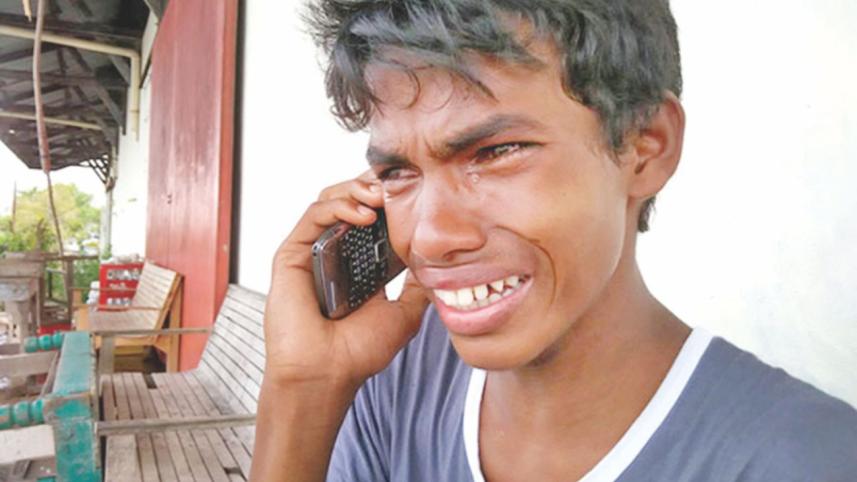Combating illicit transfer of children

The story of 14-year-old Absaruddin is simply grimmest as it appeared in The Daily Star on May 17, 2015. The title, 'I want to go back to my mother' says it all. In the previous day (May 16, 2015), there were faces of children appeared in the front page of The Daily Star. They were children of Bangladeshi and Rohingya people who were rescued from sea as mentioned in the report, entitled, “900 Rohingya and Bangladeshi trafficking victims survive”. As appeared in the report, there were at least 61 children who were ferried to shore by Indonesian fishermen. Both Bangladesh and Myanmar are parties to the Convention on the Rights of the Child (CRC), the most venerated human rights convention and they are accountable to fulfill their obligations under this convention.
It has been stated in Article 11 (1) of CRC, “States Parties shall take measures to combat the illicit transfer and non-return of children abroad”. Duty of state parties has been elaborated further in Article 11(2), “To this end, States Parties shall promote the conclusion of bilateral or multilateral agreements or accession to existing agreements”. Arrangements, therefore, must be made by respective countries to bring those children back home.
While the Rohingya are fleeing persecution, the Bangladeshis are trying to escape deep poverty. A high proportion of the poor in Bangladesh are children, and the incidence of poverty among children is invariably higher than in the adult population. The long run impacts and irreversibility of poverty suffered during childhood are well documented in terms of nutrition, stunted growth, delayed school enrolment and reduced grade completion. Story of Absaruddin and other stranded children clearly reminds us to address child poverty comprehensively despite gains made by our country in combating abject poverty as a whole.
Recently, South Africa's Archbishop and Nobel Peace Prize laureate Desmond Tutu called for international aid to Myanmar to be linked to the plight of the country's persecuted Rohingya Muslim minority. He suggested international community to adopt a common position making funding the development of Myanmar conditional on the restoration of citizenship, nationality, and basic human rights to the Rohingya. His call is very significant and international community must make Myanmar accountable to address basic human rights issues.
Rights of the children must be realised including rights of minority children of Myanmar.
The writer is a human rights worker.



 For all latest news, follow The Daily Star's Google News channel.
For all latest news, follow The Daily Star's Google News channel.
Comments